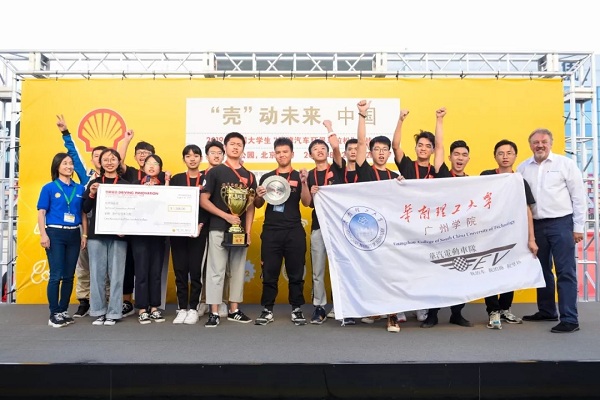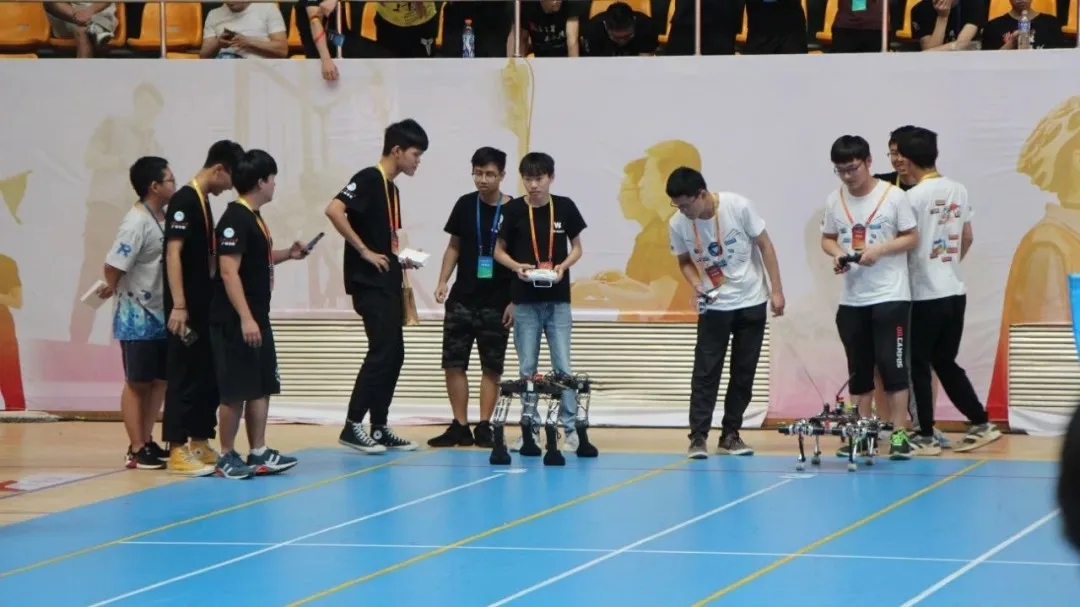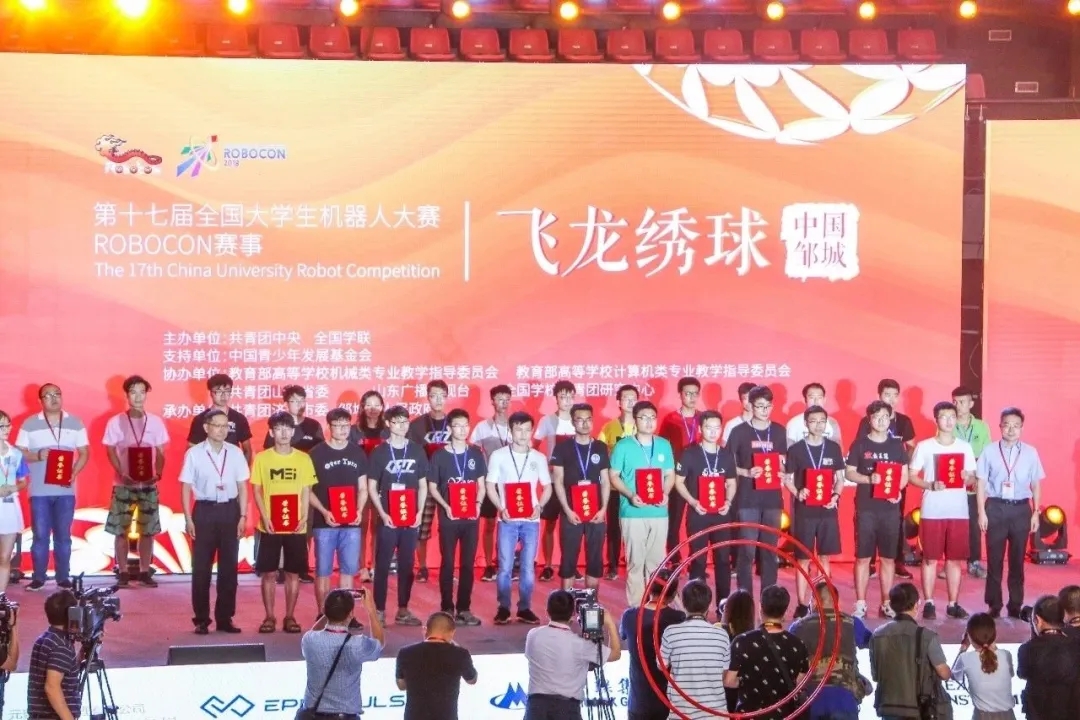
Latest >
- Shanghai Ranking released its 2025 Best Chinese Non-government Universities Ranking, in which GCUT has ranked the top among Guangdong’s private polytechnic universities for 5 consecutive years
- GCUT signed a Memorandum of Cooperation with the University of Liverpool
- GCUT held a public welfare activity to recycle second-hand items
- GCUT's library held a lecture on CNKI AI For Academic, providing a new approach to scientific research
- GCUT held a large-scale on-campus job fair for its Class of 2025 graduates
- GCUT held the 2025 psychological work meeting for this semester
- Volunteer programs of GCUT's School of Foreign Languages and four volunteers have been granted the title of role models in Huadu District
- Good news! GCUT won several awards in the 4th Guangdong - Hong Kong - Macao Greater Bay Area College Student Arts Festival
- GCUT ranks the 7th nationwide and the 1st in Guangdong province
- GCUT's Institute of Intelligent Manufacturing Industry is included in provincial demonstration modern industrial institutes for the second time
Introduction of the School of Robotics Engineering
Time:2019-09-05 Page views:16
In 2017, Guangzhou College of South China University of Technology (GCU) was approved to set up a major, Robotics Engineering, which was one of the first batch of the 25 universities that set up the major. It began its enrollment in the same year, which was included in the School of Mechanical Engineering. In March, 2019, GCU set up the School of Robotics Engineering.
Abundant labs
The School of Robotics Engineering has established a series of labs with comprehensive systems and advanced technologies such as lab for robot systems, lab for machine intelligence, lab for machine vision, lab for industrial robots, lab for self-driving vehicles, lab for 5G robots, robot data center and lab for cognitive computation. These labs are equipped with high-end instrument and devices including laser tracker systems, industrial robot systems, machine vision systems and coordinate measuring machines.
Experience teachers
It has formed a team of knowledgeable and experienced teachers. In recent years, GCU Robotics Team and GCU Wild Wolf Robotics Team guided by teachers of the School of Mechanical Engineering have won the first and second prizes in the China University Robot Competition for several times, which qualified themselves as leading teams nationwide. HuaQi Electric Vehicle Team has won the first prize in the Shell Eco-Marathon Asia for three consecutive years (from 2017 to 2019) as well as in the Honda China Eco-Mileage Challenge. It also won the first prize in the first Shell Eco-Marathon Challenge for China’s College Students in 2019, marking the seventh time of its winning the first prize. Electric vehicles of HuaQi Electric Vehicle Team consume lower energy consumption, whose highest record reaches 622 km per kilowatt-hour.

Cultivation system
The School of Robotics Engineering integrates disciplines such as automation, artificial intelligence, machinery and computing with robotics and the engineering development of artificial intelligence systems as its basis. It aims to foster its students to establish a relatively solid theoretical basis, the ability of practice and an interdisciplinary knowledge reserves. In this way, its students can enhance their engineering, scientific and humane thinking, enabling themselves to be interdisciplinary talents with professional skills, innovative ideas and international vision in the fields of artificial intelligence and robotics.
Achievements of HuaQi Electric Vehicle Team
The HuaQi Electric Vehicle Team participated in 6 national and international competitions starting from 2017, wining the first prize every time. Its achieving 622.55 km/kwh ranked the third in 2018 and the sixth in 2019 worldwide.

GCU Robotics Team
The GCU Robotics Team won the third prize of the ROBOCON Group in the China University Robot Competition in 2017. On June 1, 2019, it won the second prize and the Prize for the Best Organization in the China University Robot Competition. Meanwhile, it won the first prize in the racing competition, the second prize in the slalom competition and the second prize in the all-round competition subsequently in competitions held by the same organizer.

GCU Wild Wolf Robotics Team
The GCU Wild Wolf Robotics Team won the second prize of the RoboMaster 2018 (Southern Region) in Foshan Chuyu China University Robot Competition in May, 2018. It won the first prize in the 2018 China University Robot Competition in the next month of the same year.

Introduction of Robotics Engineering
Robotics Engineering focuses on the development of robot systems, machine vision, application and development of artificial intelligence as well as system integration and application and development of industrial robots. It aims to equip its students with interdisciplinary theories and skills, including mathematics, automation, machinery, computing and artificial intelligence. Moreover, it pays attention to the training of students’ engineering skills and the project development of robot system, which helps to enable them to grow into new senior engineering talents in the fields of robotics and artificial intelligence.
Curriculum of Robotics Engineering
The major curriculum of Robotics Engineering includes Mathematics for Robotics (such as Linear Algebra, Fourier Transform, Calculus of Variations, Tensor Analysis, Complex Function, Partial Differential Equation and Probability theory and Mathematical Statistics), Control Theory, Single Chip Microcomputer, Digital Signal Processing, Mechanical Design, Robot Dynamics, Electric Machine Control, Sensor Technology, Machine Learning, Machine Vision, Design of Embedded Robot System, Design of Robot System. Besides, it promotes its students to participate in extra-curricular robot competitions throughout the four years. Meanwhile, it also provides practical courses that are consistent with related theoretical courses, including project development of robots and artificial intelligence systems.
Career orientations
Its graduates can choose their career in the research and development, application and management of robots and artificial intelligence systems in industrial, military, aerospace, medical, social service, education and cultural and recreational fields that extensively adopt including artificial intelligence technologies, robot technologies and automation technologies.
Development prospects
The State Council of the People’s Republic of China released Development Planning for a New Generation of Artificial Intelligence in July, 2017. The Guangdong Provincial People’s Government subsequently released Development Planning for a New Generation of Artificial Intelligence of Guangdong Province in July, 2018. Such moves indicate that realizing sustainable, healthy and rapid development of artificial intelligence and robot industries become a national strategy. Therefore, cultivation of talents of robotic meet the requirements of national and provincial development strategies.
The School of Robotics Engineering of GCU has established a team of high-quality teachers while setting up advanced labs for robots and artificial intelligence that buttress the research and development of robot projects for its teachers and students as well as teaching practices. It devotes to the cultivation of qualified senior engineering talents that can lead the development of robot and artificial intelligence industries for the country and Guangdong province. The School of Robotics Engineering has developed a cultivation system of robot and engineering talents that combines learning and development of robot projects with its students as the priority so far, whose scale of school running and the quality of talent cultivation top nationwide.




